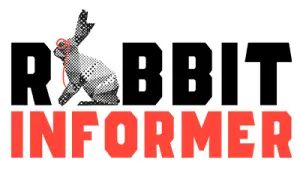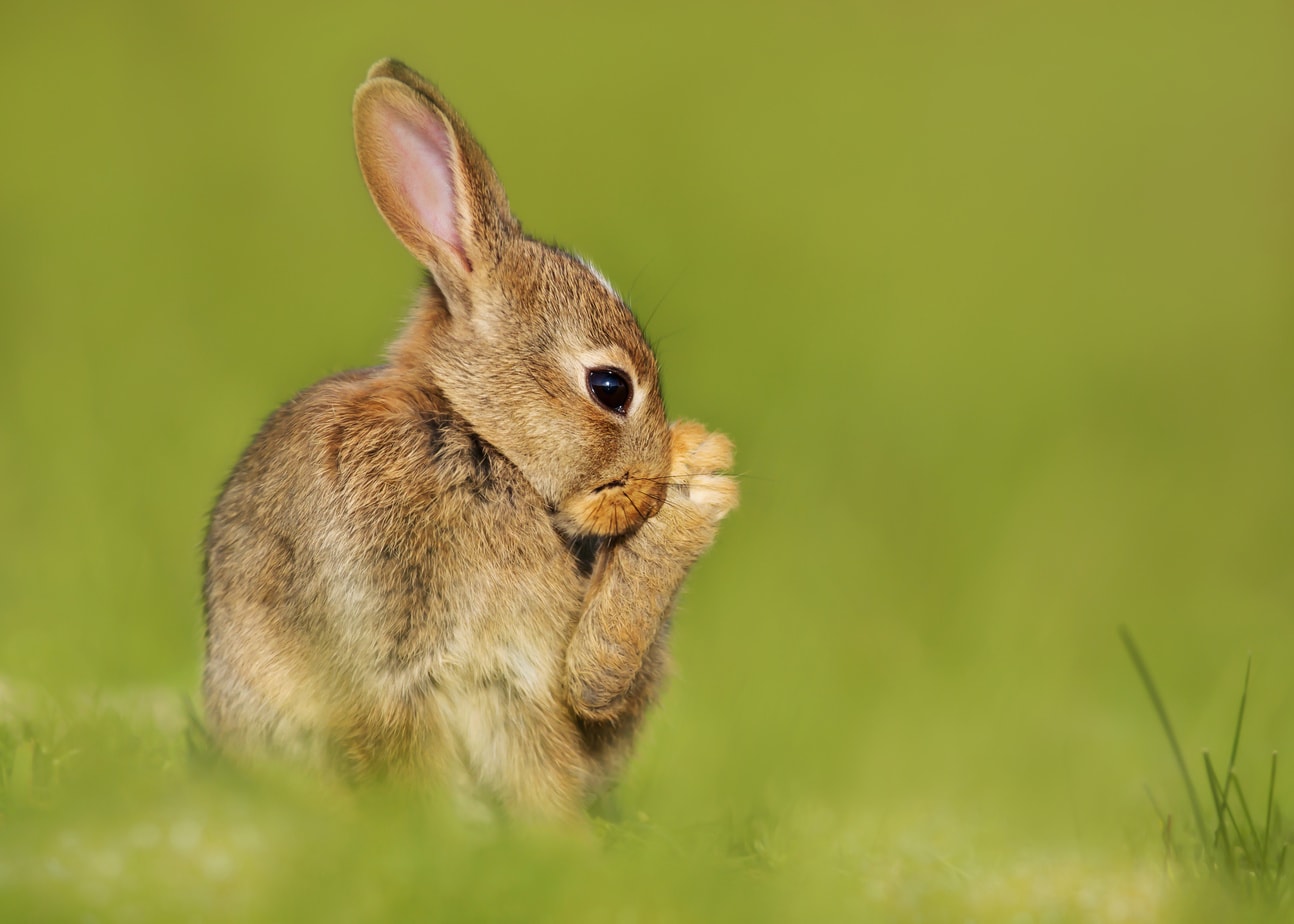
Rabbits are naturally clean creatures and meticulous groomers. Here are some ways to ensure your pet stays extra clean and healthy!
Unless a rabbit is extremely dirty, you should avoid giving them baths. In the event they do need a bath, be sure to use rabbit-specific shampoos. If your rabbit is dirty but does not need a full bath, spot cleaning is the best option.
Bathing rabbits is not recommended because rabbits can have an adverse reaction to water. Their stress and panic can be fatal. In the event your rabbit needs a bath, check with your veterinarian so they can approve the bath and teach you the best way to clean your rabbit.
When you have the all-clear and are purchasing shampoo, look for kinds that are, first and foremost, rabbit-friendly. After that, you should look for products that are all-natural and cruelty-free.
Shampoos for people and other animals, such as dogs, cats, and horses, are not safe for rabbits (unless otherwise specified) because of the extensive inclusion of chemicals and complicated formulas. It is okay for the shampoo to have some conditioning properties, and be pleasant-smelling.
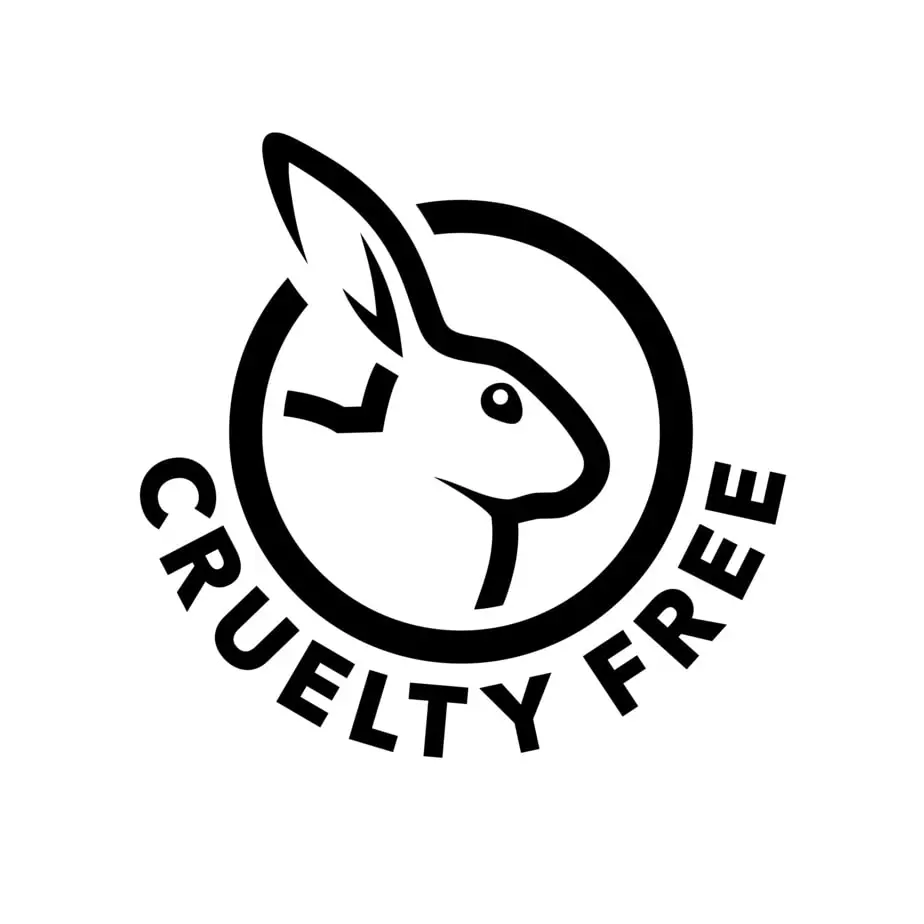
Rabbit-Safe Shampoos:
The following shampoos are effective in both full baths and spot treatments.
Bodhi Dog All Natural Anti Itch Oatmeal Spray or Shampoo
This product is safe and effective for many kinds of animals. It soothes and heals skin and contains many vitamins that support rabbit health.
Sofie’s Secret 100% Natural Organic Pet Shampoo
Sofie’s Secret is safe for just about anyone, even human babies! The natural ingredients in this product are meant to soothe skin and promote healthy skin, all while smelling lovely!
Mad About Organics Cat Oatmeal Shampoo
Even though it says “cat”, this moisturizing shampoo is made of natural ingredients and is safe for your rabbit. This product is not good for baby bunnies, however—it should only be used on animals over four months.
Odie and Cody Natural Dog Shampoo
Odie and Cody make a hypoallergenic, moisturizing, and pleasant-smelling all-natural rabbit shampoo. Again, while it specifies “dog shampoo,” this is one that is still safe for your lagomorph.
Beaphar Small Pet Ferret and Rat Shampoo
Beaphar keeps it easy. This shampoo is meant to clean your pet, while also conditioning it’s fur and leaving it with a subtle, yet pleasant scent.
There are also a few options that don’t require water at all. If you are concerned with your rabbit’s reaction to water, consider these options:
Citrus Magic Foaming Pet Cleanser
This foaming shampoo is made with small, difficult to clean animals in mind. Once you have sufficiently worked the solution into your rabbit’s fur, just wipe the excess away, and you’re done!
Dry Shampoo No Rinse Foaming Cleaner – Waterless Natural Foam Mousse
With this particular version of dry shampoo, you can use it all over your rabbit, or in isolated locations. It soothes rabbit skin and is safe for all types of fur, as well as being all-natural and detangling.
Pet Care Advisors has an extensive list of reviewed products here.
Unsafe Cleaning Products:
Anything not specifically for rabbits.
This maybe seems to go without saying, but here’s why:
Rabbits are delicate. Their skin is thin and absorbent, so if your shampoo contains chemicals or formulas that are toxic to rabbits, it can make them very sick, and even be lethal.
Additionally, shampoos for other animals can be damaging to rabbit fur. Every animal has a different kind of fur, and you will want to use a shampoo that promotes the health of your rabbit’s fur as well. Shampoos that are made for other animals might not provide the right vitamins and nutrients that are best for your rabbit.
Dawn Dish Soap
Dawn Dish Soap is a favorite for degreasing birds and other animals, but Dawn is unsafe for rabbits. It is gentle enough for many animals, but rabbits are not on that list. Dawn also has the potential to strip your rabbit’s fur and skin of its natural oils.
Generic Soaps
Bars, liquid hand soaps, and foaming cleansers are wholly unsafe for your rabbit. Human hand soaps have anti-bacterial agents, powerful and synthetic scents, and formulas that are harmful to rabbits, as well as humans.
These are not ideal shampoo alternatives in any capacity, even if your rabbit is not being fully bathed.
Do not get lazy and use these products on your rabbit.
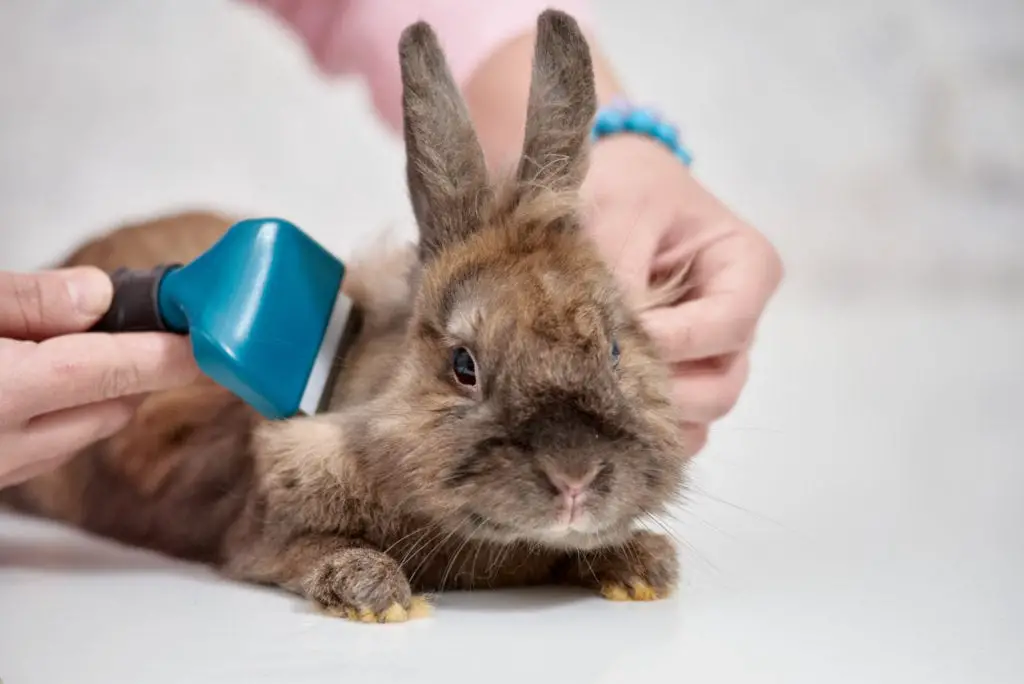
Alternative Cleaning Options:
Spot Cleaning
If your rabbit needs a little extra help cleaning itself, spot cleaning is the best way to go. Using a damp cloth, with or without rabbit shampoo, and gently wiping at the dirty area is the safest and most effective rabbit cleaning method.
Be sure to dry your rabbit’s fur before you are finished. A wet rabbit is a cold rabbit, and one that is easily susceptible to sickness and hypothermia. Gently brush out your rabbit’s fur and wrap it in a towel or blanket for warmth.
All throughout the cleaning process, check to make sure your rabbit is not experiencing extreme stress, which presents itself in unsteady breathing, hiding, and skittishness. Do your best to keep it calm and secure.
Trimming
Rabbits are typically clean and sanitary animals, but there can be occasions where there is fecal build-up on their rear. This is the most common time for spot cleaning.
If the build-up becomes substantial, your best course of action may be to trim the fur off.
Be careful while operating. Ask for another set or two of helping hands. Work to keep the rabbit calm, and try not to let it squirm. Remove as little fur as possible, and avoid your rabbit’s feet.
It is important that, in this specific instance, that you intervene in your rabbit’s hygiene and give it help. Insects and infections can afflict your rabbit, thus worsening your rabbit’s health and cleanliness.
There could be external factors influencing why your rabbit is not cleaning its rear. If the behavior persists, don’t expect change to be made independently. Rather, take your rabbit to the veterinarian for a check-up.
Bonded Rabbits 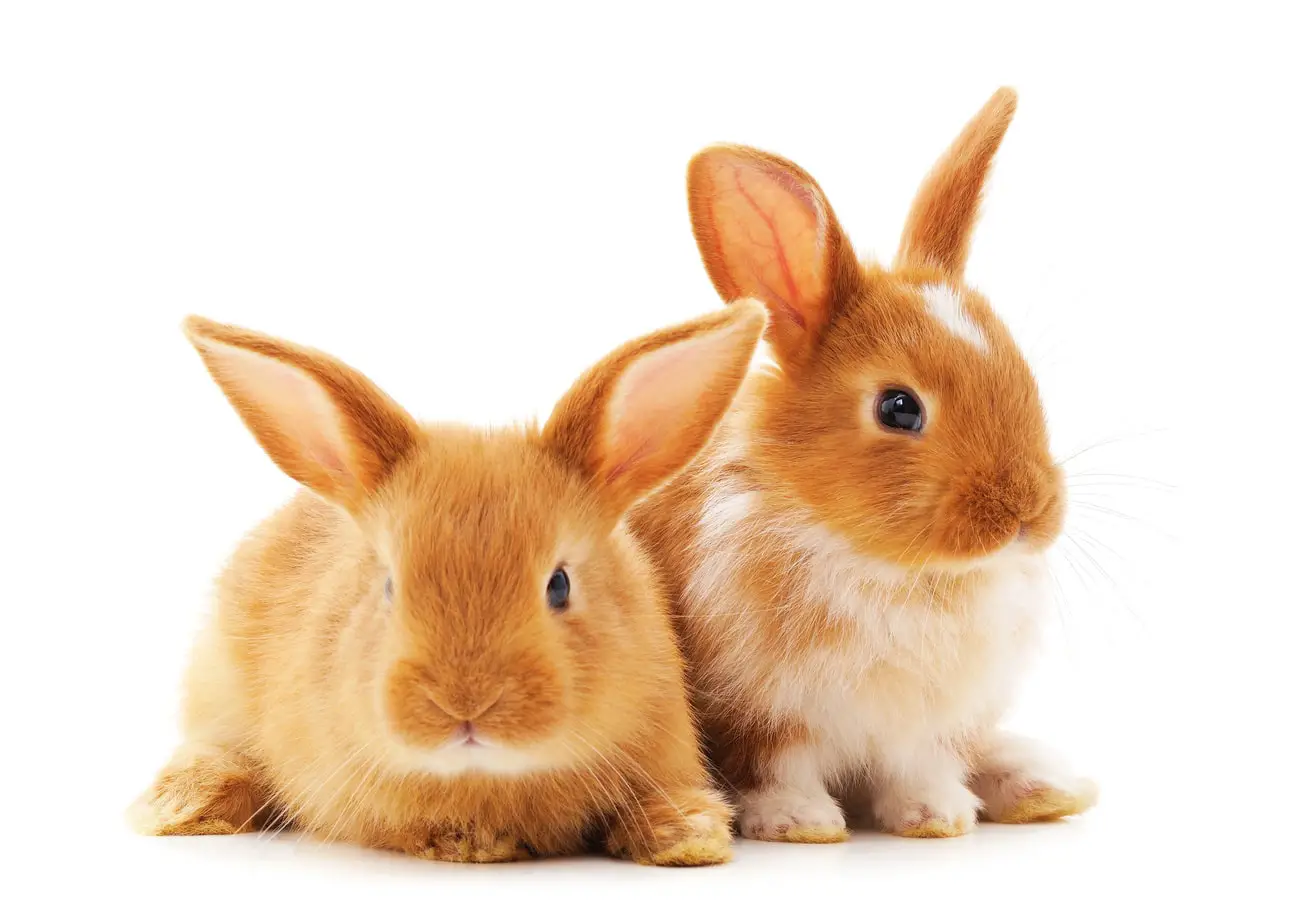
Two mated, or bonded rabbits take responsibility for grooming each other. It’s quite common for owners to have one younger and one older pet rabbit in hopes of getting them to bond and take care of each other. If that’s you, see my article about how to bond a baby rabbit with an older rabbit here for help on making this happen successfully.
Grooming is both a personal and highly social act. Groups and pairs of rabbits display their social hierarchy through grooming habits. Encouraging socialization in rabbits will help them keep clean, as well as happy and healthy.
There is one thing to be mindful of: If rabbits groom themselves or their companions too much, it can devolve into what is referred to as “barbering.” When barbering occurs, rabbits can tear out clumps of fur, which is dangerous for the rabbit’s skin and is exceptionally painful to them.
DID YOU KNOW? Two rabbits can not only bond tightly together and help take care of each other, but they can also be successful living in the same cage at the same time. There are just a few simple things you need to know first to make sure this happens, so see my article all about raising two rabbits in the same cage here to find out.
Trust Your Rabbit
Your rabbit is made to take care of itself, and it is important to let rabbits be rabbits. Only it can know exactly how it feels and what is wrong with it. Therefore, it is essential that you pay heed to your rabbit’s behavior. If it seems normal and happy and clean, then you are both doing something right!
Other Useful Articles
- Checklist: What You Need to Buy For a New Pet Rabbit – Maybe buying tons of bathing shampoo for your rabbit isn’t necessary, but there are quite a few things that you just need to have for a new rabbit. This article will make sure you have everything you need.
- Rabbit Only Comes for Food? Six Better Ways to Bond – Grooming along with so many other things will become so much easier for you if you are bonded tightly with your pet rabbit. Check out this article for some really great (and effective) things you can do to bond tighter with your rabbit.
